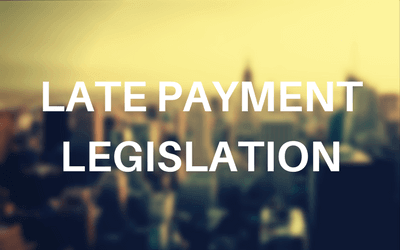Late Payment Reporting
On the 6th of April 2017, new legislation for large companies will be put into play. It requires that these businesses submit regular reports on their payment methods.
Late Reporting Legislation
The acts are entitled “The Limited Liability Partnerships Regulations 2017” and “The Reporting on Payment Practices and Performance Regulation 2017”. The aim of this legislation is to prevent larger businesses from paying their invoices late. The acts will only apply to businesses which meet at least 2 of these criteria:
- Turnover which exceeds £36m each year
- Balance sheet total of more than £18m
- Over 250 employees within the business
Every 6 months a report will need to be made, and only submitted by businesses formed within the UK.
What the report should include
The content of the payment report needs to include any transactions between two or more businesses. These should be payments for exchange of goods, services, or any form of intellectual/intangible property. Payments for financial services will not need to be reported.
It is important that large businesses make reports based on the amount of time taken to pay the invoices they have received. The time periods that need to be reported in are as follows:
Invoices that were paid…
- In less than 30 days.
- Between 31 and 60 days.
- After more than 60 days.
From this, an average number of days that payments take should be calculated.
The government would like the report to contain a percentage value of the number of invoices that weren’t paid within the agreed terms.
Any disputes that the business may have with its suppliers should also be outlined in the report, and how they were dealt with. The invoice type should be included, whether it was an E-Invoice or physical, and if supplier chain finance was used. Also, any payment codes need to be recorded, and whether the business was charged to stay on the supplier’s list.
Failure to submit this report is going to be considered a criminal offence.
How will this affect small businesses?
Overall, forcing large businesses to report on their methods of payments, and penalising those that pay invoices consistently late will have a positive effect on smaller businesses.
Several large companies believe that it is acceptable to pay small or medium sized businesses late, as they rarely have a method of chasing up payments effectively. This causes many cash flow issues and ultimately prevents smaller businesses from competing with those that are larger. As a result of this, there is currently a debt owing to small businesses of £23 billion. Not only is this bad for the economy, but it also reduces the amount of new jobs being created. This is because small and medium sized businesses are responsible for 2/3’s of all new jobs in the UK.
It has been estimated that at least 50,000 businesses have had to close every year due to consistently late payments.

